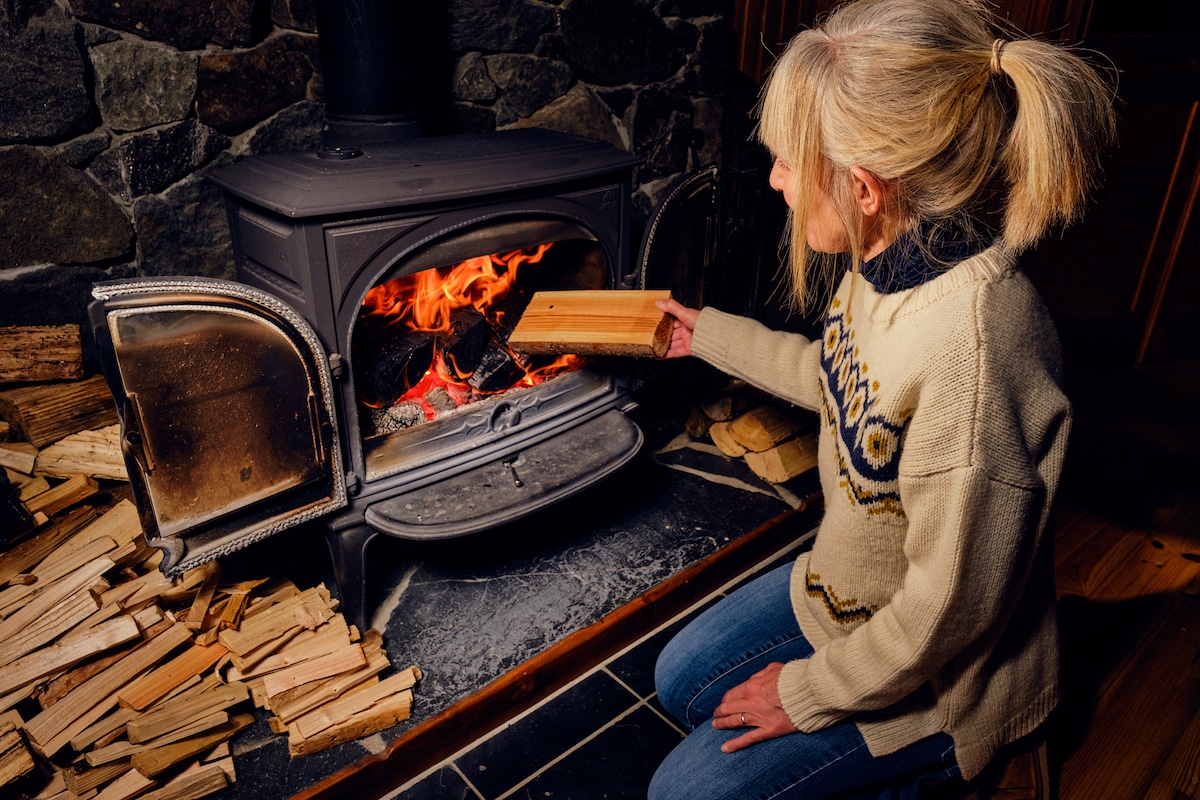Wood Stoves Could Cause ‘New Air Pollution Hotspots’ in the UK

 Why you can trust us
Why you can trust us
Founded in 2005 as an Ohio-based environmental newspaper, EcoWatch is a digital platform dedicated to publishing quality, science-based content on environmental issues, causes, and solutions.
The crackle and glow of a wood stove may be comforting, but the pollution it produces is pretty frightening. Burning wood releases high levels of toxins into the environment, creating localized pollution hot spots. Even in newer wood stoves that are certified, many of the harmful chemicals found in tobacco smoke are emitted by wood burning, but it may be even more toxic, according to Doctors and Scientists Against Wood Smoke Pollution.
Research has shown that pollution from wood smoke increases the risk of heart attack, stroke, asthma, dementia and cancer.
Wood burning has seen a big increase in the UK’s more wealthy urban areas, said Gary Fuller of the Imperial College London School of Public Health, as reported by The Guardian.
Right now, the monitoring of air pollution in the UK targets busy roads, since they are known to be the major fine particulate matter hotspots, as well as where most of the pollutants from diesel vehicles are concentrated.
Fuller pointed out that, by concentrating on these traditional sources of pollution, scientists could be overlooking newer hotspots from wood stoves.
“There is certainly a concern that we are creating new air pollution hotspots, including in more affluent areas, where people do not think of their environment as being polluted,” Fuller told The Guardian. “People perceive wood smoke to be harmless because it comes from a natural fuel. People need to understand that the wood smoke that fills their neighbourhood is as harmful as the air pollution from traffic or industry.”
Environmental organizations have warned that UK households could be breaking the air pollution rules without realizing it and could be fined for firing up their wood stoves, reported The Daily Telegraph.
According to a survey by the UK’s Department for Environment Food and Rural Affairs, half of the households located in pollution hotspots aren’t aware their fireplaces are subject to regulations.
Local councils can fine households around $210 to $360 if they exceed the pollution parameters in smoke control areas.
“Harsher enforcement of on the spot fines means people could be penalised without realising they’re doing anything wrong, so the Government needs to also increase education,” said Client Earth Campaigns and Policy Manager, Clean Air, Andrea Lee, as The Telegraph reported.
In a recent study in North London, walkers wearing backpacks tracked solid fuel pollution sources, and Fuller has sent researchers out with backpacks to observe air pollution coming from wood stoves in some areas of London, reported The Guardian.
Fuller said the pollution from wood burning stoves was likely affecting more people, since people tend to burn wood in the evening where others are more likely to be exposed.
“People burn wood on cold winter nights when their neighbours are at home. Air pollution can settle over an area, meaning that more people can be exposed than those that experience traffic pollution from busy roads,” said Fuller, as The Guardian reported.
The UK’s Climate Change Committee has called for the phasing out of domestic wood stoves, according to Clean Air in London.
“As a society, we made a choice that people must not be exposed to secondhand cigarette smoke against their will. Given what we now know, it is time to extend this attitude to wood smoke,” said the Doctors and Scientists Against Wood Smoke Pollution on their website.
Subscribe to get exclusive updates in our daily newsletter!
By signing up, you agree to the Terms of Use and Privacy Policy & to receive electronic communications from EcoWatch Media Group, which may include marketing promotions, advertisements and sponsored content.

 233k
233k  41k
41k  Subscribe
Subscribe 




